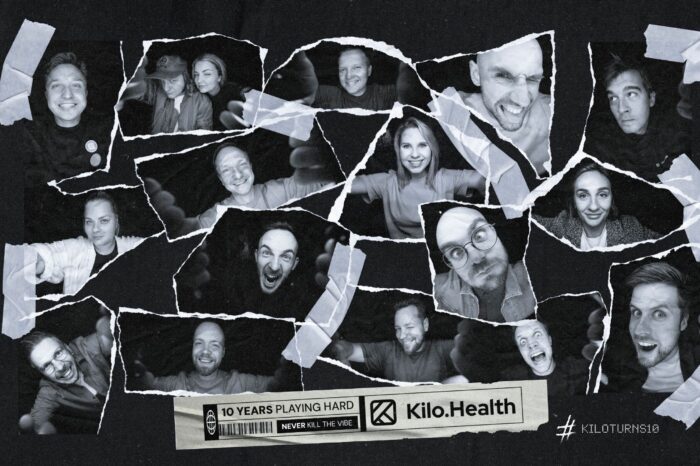

Consulting more than 30,000 people about nutrition will make you pick up some clues on what foods can confuse a typical health-conscious person. And believe me, I have heard some peculiar misconceptions people believe over my career. Some of them are funny. Others might be dangerous.
Here are just a couple that pops into my mind:
You might have heard that gluten-containing foods such as wheat and wheat products are inherently bad for your health.
Research shows that there is no need to avoid gluten unless you have a medical reason. Gluten might lead to serious side effects in people who have an autoimmune condition called celiac disease or gluten intolerance. For these people, a gluten-free diet is the most effective medical treatment.
However, if you don’t have these conditions, you shouldn’t restrict yourself from eating gluten. Gluten-containing whole grains are rich in fiber and nutrients, including B vitamins, magnesium, and iron, all of which are essential for our optimal health.
Choose unprocessed or lightly processed grains because highly processed versions contain refined sugars, higher amounts of saturated fats, and have a higher glycaemic index.
Over recent years, the media has portrayed sugar in fruit as the sugar-rich enemy, which led people to avoid consuming too much fruit.
While the World Health Organization recommends limiting the intake of added sugars to less than 10% of total energy intake, this advice does not apply to the sugar we get in whole fruit.
The manufacturer, cook, or consumer includes free sugar in their food. That includes sugars naturally present in honey, syrups, and unsweetened fruit juices, too.
However, the sugar in fruit is naturally bound within its cellular structure, making it act differently in our body than added sugars. Whole fruit is rich in nutrients and fiber and does not spike our blood sugar levels as much as sugary drinks or sweets. Regular fruit consumption has been linked with a lower risk of cardiovascular disease, cancer, and premature death.
Therefore, everyone should have a few portions of whole fruit per day as part of a balanced diet.
One small thing: fruit juices and smoothies contain free sugars due to the release of the natural sugars from the structure of fruit by blending and juicing. However, they still provide a great variety of vitamins and minerals and some fiber. Don’t drink more than 150ml of these drinks per day.
Many people believe that frozen fruit and vegetables are not as healthy as fresh. That’s untrue, too.
Frozen fruit and vegetables can be more nutritious. They are picked and frozen within hours of being harvested, protecting the vitamins and minerals they contain. In contrast, fresh vegetables and fruits begin to lose some nutrients after being picked, packed, stored, and transported to the grocery stores.
A study from 2017 found that frozen produce is either as nutritious or more nutritious than fresh vegetables and fruits. Frozen fruit and vegetables are also more affordable and convenient and can help with reducing food waste.
Would you like to fix this mess? Let’s do it together.


My experience comes from aviation, but now I lead a wellness and HealthTech company. Business lessons are universally similar, and continuous success requires adaptation and growth. In this article, I want to share the most important points — or perhaps…

As we’re entering an exciting new chapter of business growth and leadership, it’s the perfect time to catch up on the latest changes in our team and where we’re headed next. Dive in and get to know our new CEO…

I’m Matas, and when asked, I refer to myself as an intern — always learning. However, research, strategy, business development, and idea generation are the cornerstones of my work. I want to pull back the curtain and give you an…

I’m Deimante, currently Head of Marketing at Kilo Health, and a big lover of this company. My journey to being hired at Kilo has been quite the ride. How it all started? I underwent interviews with 11 different people and…

Ever dreamt of taking the lead, even if the path isn’t crystal clear? Or to have someone believe in you and offer you a chance to figure out whether you would thrive in a startup environment? Speaking of which, Kilo…

A whole decade has raced by in the blink of an eye for us at Kilo Health, and what better way to celebrate than to reflect on the milestones and lessons over the years? Do you know where we started?…

We, the co-founders, are just ordinary individuals with grand ambitions. There are times when we work twice as long and intensely as others, yet we’re equipped with the same amount of daytime, energy, and capacity. However, as leaders in the…

There’s no enchanting tale behind how I became a part of Kilo Health. In truth, some of us regular folks simply have regular journeys, and that’s perfectly fine. What counts is that today, I hold a successful product in my…

Reflecting on your achievements from the previous year is advantageous. That’s exactly what we did, proudly demonstrating our boundless aspirations through an impressive 84% growth and 213 million euros. So let’s put our hands in the air and celebrate together,…

I joined Kilo Health back in 2019, and I can prove that when people’s values and mindsets align, great things can be accomplished, even if you don’t have a plan. BoomeranGO!, the first and only product for children provided by…

Lighting, sound, set, and actors are essential components of a film studio, but they are not the sole factors that define its success. Consistent creativity, appreciation of talent, and adaptability to market trends are a few of the things that…

Hi there, I’m Deividas Norkunas, and I’m the AI Experimentation Lead at Kilo Health. I’ve always been passionate about problem-solving, and when there’s no challenge to tackle, well, let’s just say I start looking for something to do. Before this…

Hey there, thanks for finding your way to this blog post. I’m Beatrice, the Marketing Lead of TikTok and Pinterest, but my path wasn’t exactly a straight line. In fact, I’ve held quite a few positions at Kilo Health and…